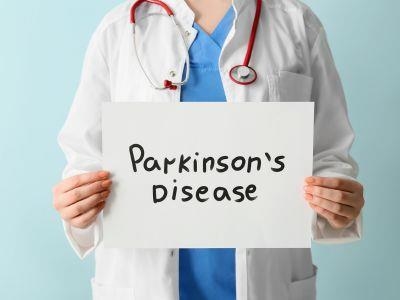World Parkinson’s Day: hope on the horizon
- 03 April 2024
- 2 min read
World Parkinson’s Day takes place on 11 April every year to raise awareness of Parkinson’s. While there is currently no cure for the disease, ongoing research and advancements in treatment options offer hope for improved management of symptoms and ultimately finding a cure.
Today, we highlight two research projects taking place in Wessex aimed at advancing treatment and providing hope to all those affected by the disease.
Parkinson’s and Movement Disorders Families Project
This project aims to understand more about the genetics of Parkinson’s and other movement disorders, in order to develop better tests and medications that could help slow, stop or prevent Parkinson’s.
The study is open to recruitment until 2030. For more information go to the study web pages
The Edmond J Safra Accelerating Clinical Trials in Parkinson's Disease Initiative
This is an exciting new trial that will be recruiting later this year. It uses a new approach to clinical trial design called Multi Arm Multi Stage Platform Trial (MAMS) which allows for multiple drugs to be tested simultaneously and a seamless transition from early to later stage clinical testing. Prospective therapeutics are eliminated and replaced at the early stage if they are shown not to be effective. Using this platform, 12 drugs can be initiated into a trial over five years - a process which would take 40 years and ten times as many patients using established protocols.
This trial is now taking expressions of interest with many Wessex sites keen to participate. The recruitment start date is planned for December 2024 with a total of 1600 participants needed.
What is Parkinson’s Disease
Parkinson’s disease (PD) is a condition in which parts of the brain become progressively damaged over many years. It affects 1–2 per 1000 of the population at any time.

The incidence of PD increases with age, rising sharply at around age 65. With an ageing population and ever-increasing life expectancy, the number of people with PD is projected to reach over 12 million worldwide by 2040.
It is the fastest growing neurological condition in the world. The underlying symptoms of Parkinson’s are treated with a range of medication, but currently none of these stop or reverse the progression of the disease.
The symptoms of Parkinson’s are mainly caused by the loss of dopamine-producing nerve cells in the brain which control movement. Low levels of dopamine affect how your body moves, making day-to-day activities such as eating, getting dressed or using everyday objects like a phone or computer difficult. The main symptoms of Parkinson’s are tremor, muscle stiffness and slowness of movement, but not everyone will experience all of these.

Parkinson’s can also cause a wide range of non-movement related symptoms including chronic pain, sleep disturbance, constipation and gut problems, memory concerns, anxiety and depression; all of which can significantly impact a person’s day-to-day life.
Each individual diagnosed with Parkinson’s experiences different symptoms in different ways and to varying degrees. With a person’s own combination of symptoms and side-effects, it can make treating Parkinson’s difficult.
More information and getting involved
- BePartOfResearch - in addition to the studies highlighted above, the Be Part of Research website lists further Parkinson Disease research taking place across the UK
- NHS information about Parkinson’s disease
- Parkinson’s UK - the main Parkinson’s support and research charity in the UK


